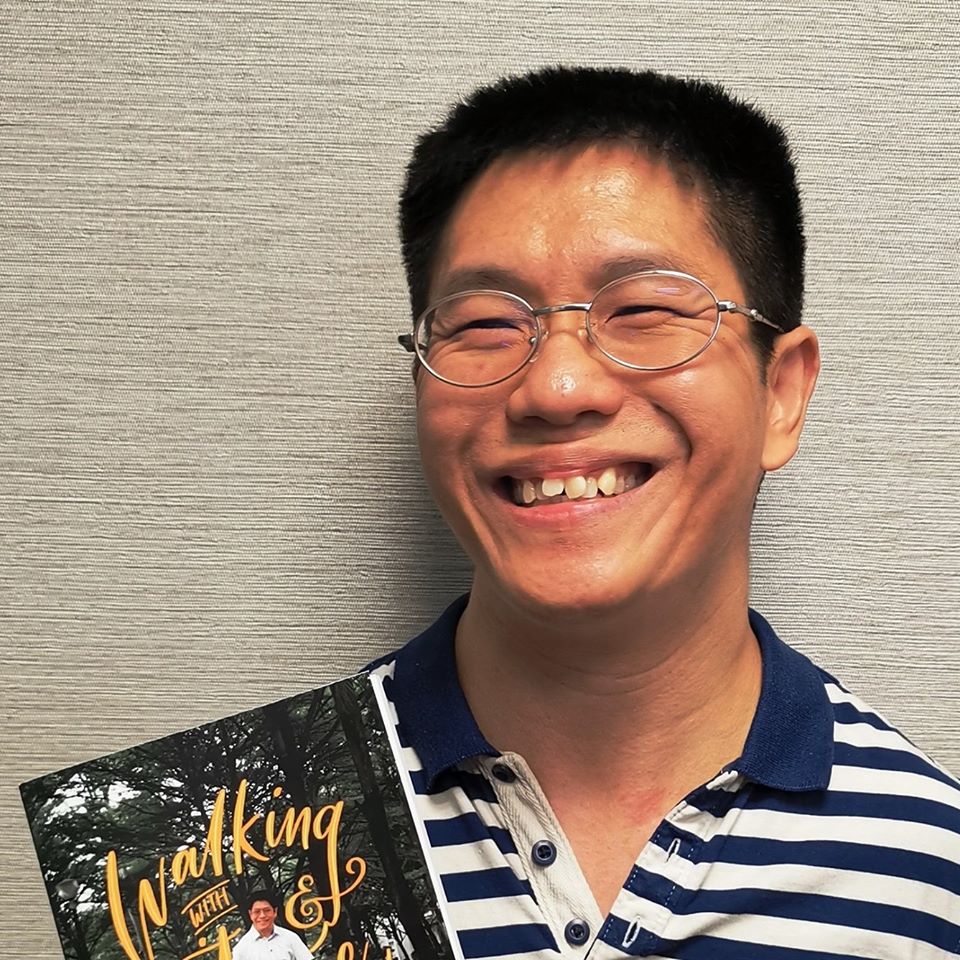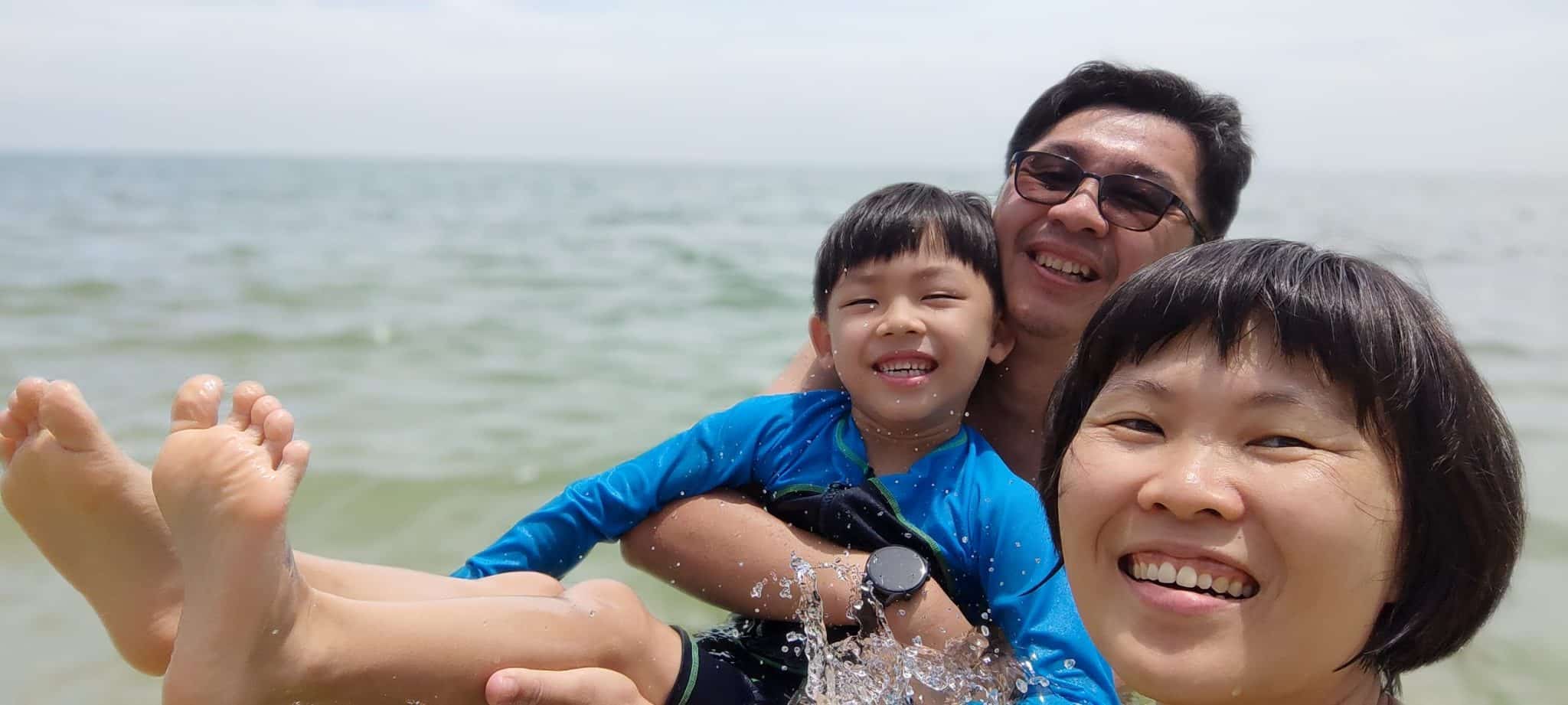“God can bring forth something beautiful even with my difficulties,” says pastor with cerebral palsy
Pastor Michael Yeong // December 7, 2019, 2:17 pm
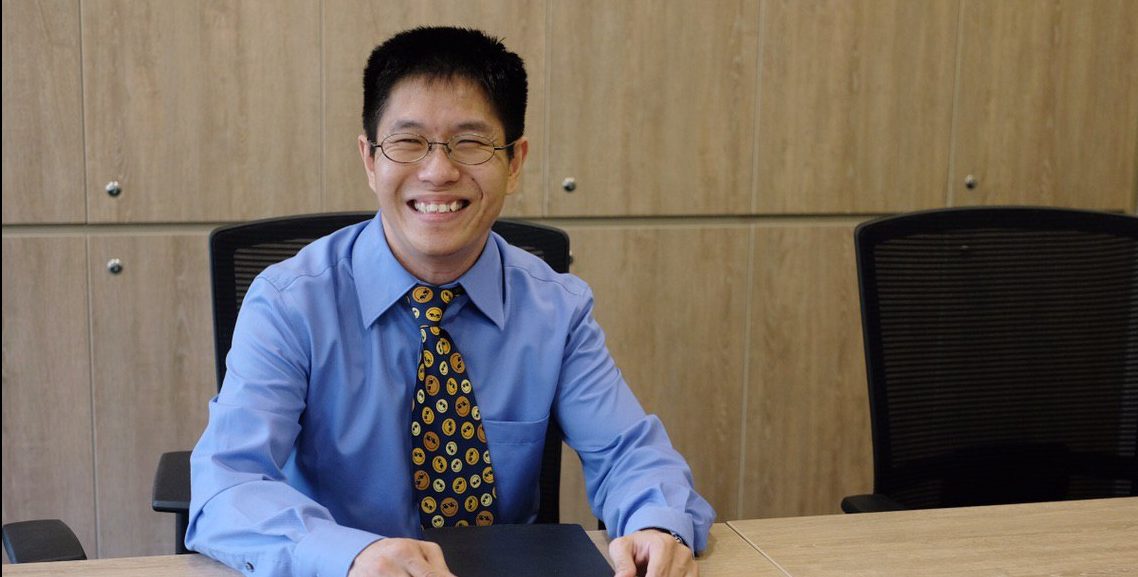
"God is sovereign. He chooses to heal whoever He wants to heal and when He does so, it is according to His own divine purposes," writes Pastor Michael Yeong in his autobiography, Walking with Grit and Grace: Finding Joy in the Face of Cerebral Palsy. Photo by Tan Huey Ying.
My mother was about 40 years old when she had much difficulty giving birth to my twin brother and me, who were premature babies.
Due to a brain injury sustained in the birthing process, I was born with cerebral palsy, and this affected both my legs. My twin brother, unfortunately, died at birth.
Cerebral palsy is a physical disability that affects a person’s movement and posture when a part of the brain is damaged. It is not hereditary and does not become more severe with age.
Every case is unique to the individual as the condition has varying degrees of severity. In my case, my brain does not send the right signals to my legs, so I have difficulty maintaining my balance, especially when I need to stand still or when I go up stairs without railings.
I often ask myself: “Why did God give me cerebral palsy?”
Because of my disability, I cannot baptise people (I would not be able to stand firm in the water) and it is difficult for me to go on mission trips.
“Wouldn’t I be able to do more for God if I am able-bodied?”
When God doesn’t heal
Over the years as a Christian, I have lost count of the number of miracle rallies I have gone for. Maybe 10? Several people have prayed for my healing from cerebral palsy, but somehow I never got healed.
In the earlier years, I used to be very disappointed when I wasn’t healed after someone prayed for me. But I always picked myself up after that. I told myself that I had thrived in spite of my disability and I could continue to do so.
At the same time, I felt God’s comforting presence that He was still with me even though I did not get healed.
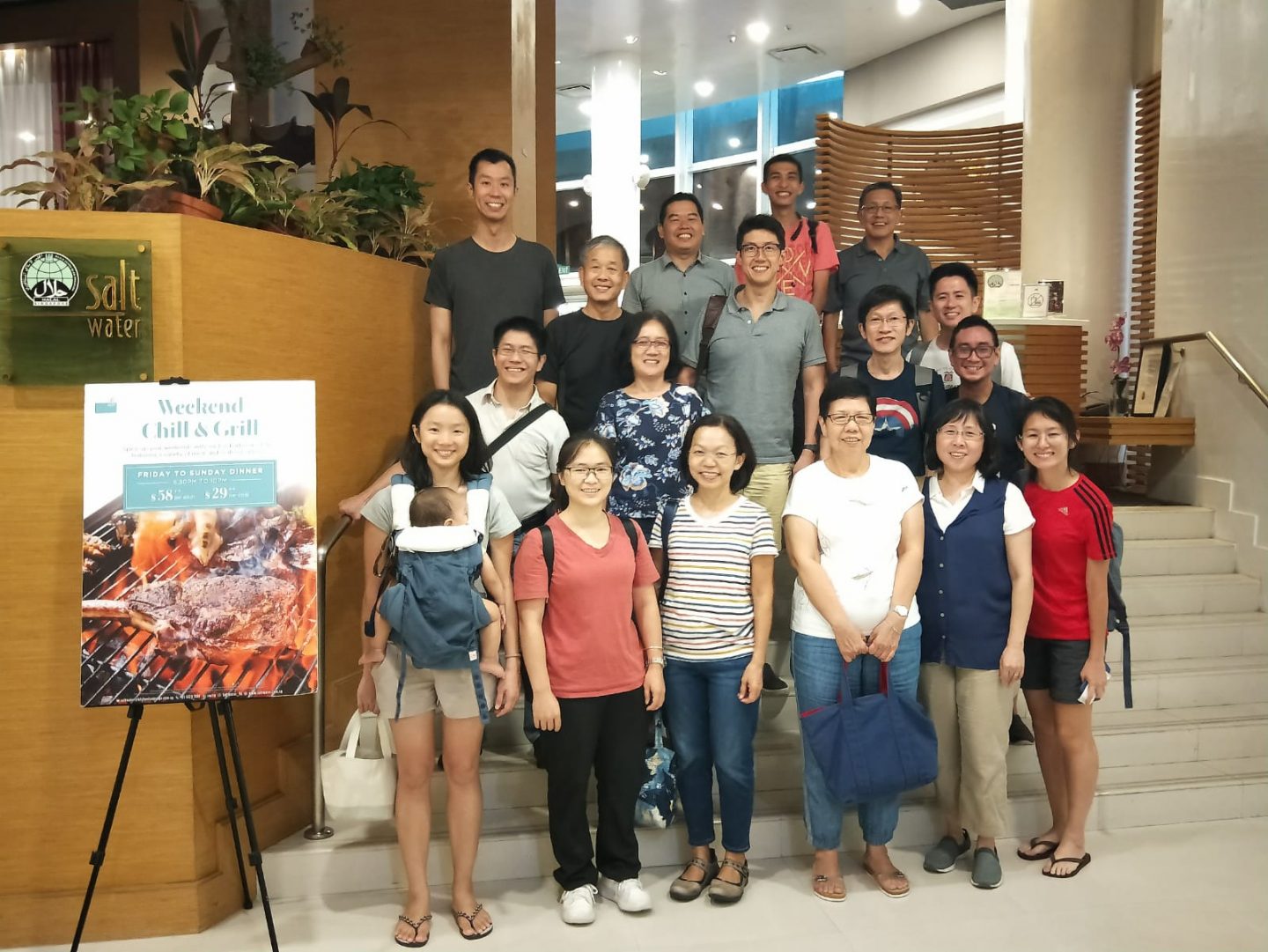
Ps Yeong (second row, extreme left) with members of the church staff team and their families during a staff retreat this August. Ps Yeong oversees the senior adults, family life and special needs ministries at Bethesda Church Bukit Arang. Photo courtesy of Michael Yeong.
I had been through this process many times — being hopeful whenever someone prays for my healing, while learning to manage my emotions so I do not become overly disappointed when I am not healed.
I try to hope for the best but am prepared for the worst. Is that considered a lack of faith on my part? As a younger Christian, I used to blame myself for my lack of faith.
Over the years, as I study the Bible, I have recognised that unanswered prayers are not always due to a lack of faith. God is sovereign. He chooses to heal whoever He wants to heal and when He does so, it is according to His own divine purposes.
God is sovereign. He chooses to heal whoever He wants to heal and when He does so, it is according to His own divine purposes.
In His wisdom, He may choose to withhold healing. The reason for that in my case remains a mystery, but the Bible reminds us:
“Not only so, but we also rejoice in our sufferings, because we know that suffering produces perseverance; perseverance, character; and character, hope. And hope does not disappoint us, because God has poured out his love into our hearts by the Holy Spirit, whom he has given us.” (Romans 5:3-5)
Up till today, I remain hopeful that one day, God willing, He can and will heal me according to His good purposes.
In the meantime, I struggle with simple daily tasks that others take for granted. It takes me five minutes to wear my shoes, and sometimes I feel embarrassed about making others wait for me while I painstakingly wear my shoes.
At the same time, I am grateful for the things that God enables me to do despite my disability. I thank God that through the difficulties I faced, I have learnt to be resilient and to be humble to ask and receive help from family members and friends, especially my wife, Cynthia.
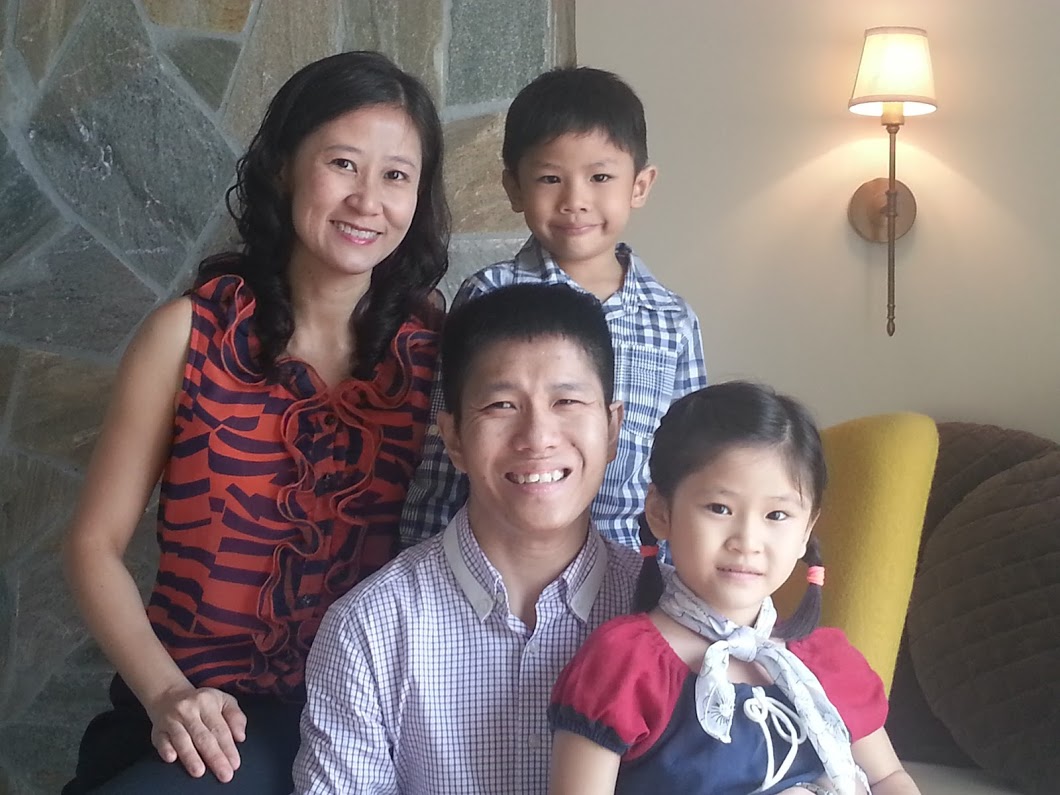
Pastor Yeong with his wife, Cynthia, 48, and children Nathanael, 10, and Abigail, 12. Photo courtesy of Ps Michael Yeong.
And I have learnt to experience God’s care and provision for me, and to surrender to His purposes in my life.
Although I may not understand why God has not healed me, I trust that God knows best and that He cares deeply for me. I choose to glorify Him whether I get healed or not.
Sustaining grace
In her book The Scars That Have Shaped Me, Vaneetha Rendall Risner makes a distinction between delivering grace and sustaining grace.
She said that in some situations, God does a miracle for us, and shows His glory by delivering us.
In other situations, God shows His glory by what He does in us when sustaining us. With sustaining grace, God keeps us dependent on Him, and we grow to know Him more as we come to Him daily.
God often uses our difficulties to bring forth something beautiful.
At the point when God will be more glorified through our deliverance, He will do it! Until then, we cling onto His promise to heal and persevere in hope.
God often uses our difficulties to bring forth something beautiful. A pearl is formed because of an irritant in an oyster. Without the irritant, the oyster would remain an oyster. However, through the process of pain and suffering, a beautiful pearl is formed.
My physical disability is an unwanted gift. However, instead of rejecting it, if I embrace it, God can bring about something beautiful. And in the midst of that suffering I learn to continue to depend on Him.
I would rather God be glorified when I am healed of my disability. But if God sees it fit that others can see His hand at work in my life because of my disability, then for that, difficult as it may be, I rejoice!
Finding peace with disability
I learnt to see my disability, not simply from a more positive perspective, but God’s perspective.
No one celebrates their weaknesses. We try to hide and camouflage them. God encouraged me by showing how He saw my disability.
“My gracious favour is all your need. My power works best in your weakness.” (2 Corinthians 12:9a)
If I had written the verse, it probably would have read: “My power works best in your strength.” But God says: “My power works best in your weakness.”
God’s power is best demonstrated not in my strength but my weakness, my disability.
It took me two years to embrace that truth — that God’s power is best demonstrated not in my strength but my weakness, my disability.
If I were gifted with all kinds of natural abilities and physical strength, everything I did would simply be attributed to my natural gifts.
But in my weakness, I am reminded to give Him all the glory because I know that He is the One who has given me the grace to do many things.
More than that, I had to come to a place of surrender — to give up trusting in my abilities, and to learn to depend on God and find my sufficiency in Him. I thank God I have come to that place, and to echo what the Apostle Paul said:
“So now I am glad to boast about my weaknesses, so that the power of Christ may work through me.” (2 Corinthians 12:9b)
“Disabled people are not God’s afterthought,” says pastor with cerebral palsy
This is an excerpt from Pastor Michael Yeong’s autobiography, Walking with Grit and Grace: Finding Joy in the Face of Cerebral Palsy. It is republished with permission. His book is available for purchase here.
We are an independent, non-profit organisation that relies on the generosity of our readers, such as yourself, to continue serving the kingdom. Every dollar donated goes directly back into our editorial coverage.
Would you consider partnering with us in our kingdom work by supporting us financially, either as a one-off donation, or a recurring pledge?
Support Salt&Light